Book Reviews (Mar 2025)
Fleishman Is In Trouble; Fellow Travelers; Show, Don't Tell; Burn After Reading; In Memoriam
Taffy Brodesser-Akner - Fleishman Is In Trouble
The debut novel by culture journalist Taffy Brodesser-Akner has been sitting on my bookshelf since it was first published - a friend gave it to me in hardback! Hardback! Fortunately said friend does not actually read this newsletter/blog/whatever we're calling these things these days, so I shall hopefully escape the wrath/tut-tutting/I-told-you-so of not having read this in a timely manner, because good grief I loved it. I inhaled it.
Title character Toby Fleishman is a married man in his early 40s, a successful and admirable Manhattan professional (a doctor!) who nevertheless feels (is made to feel) as though he’s letting his wife Rachel down, constantly. She is scrappier and more striving than he is, coming from a less privileged background, but she also seems to be worryingly obsessed with status and fitting-in in ways Toby finds abhorrent. He is, after all, A DOCTOR, and "winning" by most sane accounts; Rachel, however, is a fancy theater agent and her expectations are a tad higher.
We are primed to hate Rachel, and root for Toby, as we step into this summer with him: his newly-separated summer, where he and Rachel have agreed things are not working out and where the entire intoxicating world of dating app sex is available to him. Everything's coming up Toby - until Rachel vanishes. What's going on?
The most genius move in this book is the choice of narrator - we witness the falling-apart of this marriage from the perspective of Libby, a college friend of Toby's he reconnects with during this fraught time, and someone also experiencing that point in a marriage, a committed relationship, where the aspirations and endless possibilities of youth give way to a more limited reality. Libby’s a journalist trained to look for multiple sides to the story, but she’s too close to this one - she, like Toby, views Rachel as a kind of monster. And then their paths cross…
Rachel’s side of the story isn’t anything as drastic as a complete revisiting of the facts, but we do get a lot of context that helps explain why she’s behaved the way she has - and makes her a lot more sympathetic. I suspect if you are a female reader, you’ve been waiting for this anyway - turning the pages wondering, okay, what’s really going on here. And I mean this without denying any sympathy towards Toby, or suggesting that all men are terrible, or anything like that, but it’s so good on the messiness of relationships and love and privilege and how people move through the world in different ways and can’t even see it.
The TV adaptation with Jesse Eisenberg as the titular Toby, Claire Danes epic-crying as Rachel, Lizzy Caplan killing it as Libby, Adam Brody as a non-OC Seth, and Josh Radnor as Libby’s husband (instantly sympathetic after nine seasons of How I Met Your Mother), is very pleasing and stays close to the book. Brodesser-Akner adapted it herself, so that makes sense, and I do think the miniseries format is a good match for the novel - similar in scope, and giving writers enough scope to include some of the nuances and twists instead of the paring-back and streamlining that needs to be done for a film version. (See below for more feelings on miniseries…)
Really loved this. I’m not sure if I am more fond of the book or the series - they are both excellent.
*
Thomas Mallon - Fellow Travelers
I don't know how to talk about this book (published 2007) without talking about the miniseries (eight episodes, 2023, and at least ten years in the making/dreaming). But if I talk about the miniseries (Matt Bomer and Jonathan Bailey in a troubled yet tender relationship that moves from the lavender scare of the 1950s to the AIDS crisis of the 1980s and will break your heart a few hundred times in the process) I will become incoherent. Dilemma.
Are we familiar with the "lavender scare", humans? The term has been popularised by the historian David K Johnson, drawing on the "red scare" motif of communism and the way in which "lavender" was coded. It basically refers to a moral panic over the idea that you might have gay or lesbian government employees who, in addition to being deviants to be pitied or repulsed by, would be particularly susceptible to being blackmailed and therefore… secret communists. And when communism - not just an ideological but a political, military threat - was a big deal in a way that might seem laughable now (post-Iron-Curtain, those of us of a liberal persuasion are likely to be cheering "bring on the communism!"), this meant adding the queers to the long list of potential witch-hunt targets.
I am not in any way an expert on this particular time period (or any, really, but there are some eras I have better-than-average knowledge about - I insanely once thought it was a good idea to try to cover three late-18th-century rebellions in the space of one book for young people, for example). But I'd been keeping an eye out for "lavender scare" books since reading Robin Talley's excellent YA novel Pulp, and appreciating the use of the HUAC (House Un-American Activities Committee) in magical-realist works like Kelly Barnhill's When Women Were Dragons. And then this book popped up on my radar. (I understand now that is because a series had happened. But at the time of my eager library-requesting I was not yet aware.)
DC-based writer Thomas Mallon specializes in delving into American political history and exploring the lives of those on the sidelines of big historical moments. This book is very much about the 1950s, and McCarthy's investigations, and corruption, and hypocrisy, and also about America and ideas of freedom. At its centre is the relationship between two staffers, the impeccably cool Hawkins Fuller and earnestly Catholic Tim Laughlin, and it is about what it might mean, to be a gay American at this particular time, but also just about America at this particular time. There is much political detail, and it is very clearly a thoroughly researched work.
The book is about American political history. The series is about American queer history - broadening the scope of these two men in the 1950s, and the occasional men they might encounter, to the queer community of the time. For example: Hawk's co-worker Mary, later a friend of Tim's, is in the book a woman who has an affair with a married man and ends up pregnant; in the series she's a lesbian who loses a lover to a government investigation and holds parties that let Tim meet other queer people for the first time. Hawk of the book is isolated; Hawk in the series has a black friend (and former hookup), Marcus, who gets a storyline of his own that allows the series to explore the particular experience of being a gay man also dealing with the in-practice-not-quite-desegregated world of DC.
The book focuses almost entirely on the 1950s, with bookends in the early 90s; the series mostly moves between the 50s and 80s, with a couple of stops in the late 60s (protesting the Vietnam War) and 70s (the murder of Harvey Milk). It adds a second half that the book doesn't provide, that contradicts the book in many ways, and also may feel a little predictable in its focus on the AIDS crisis, which the book specifically resists (except the screenwriter is Ron Nyswaner, who gave the world Philadelphia, and that context makes a difference, I think; you kind of feel, okay, yeah, he has a permission slip). The book invites you to think about American troops as the good guys, bringing freedom across the globe; the series shies away from letting us see either of the two protagonists in their military roles. The book is more attentive to the historical specifics; the series is a little looser with its mix of real and fictional-but-inspired-by figures.
The book is mostly Tim's story. The series is mostly Hawk's. (I know Jonathan Bailey is kind of having a moment right now, but Matt Bomer is incredible in this.)
I liked the book. It is well-written, and detailed, and moving; the last page had me in bits. But if I am honest, I loved the series more - and I've been interrogating that, because in some ways the series is more "obvious" (there is an episode on Fire Island!), and does that mean I am choosing the cheap thrill of Bomer-and-Bailey-being-hot over the nuanced complexity of the prose work that sparked off the whole thing? Or is it a bit more complicated?
I'm really glad to have read the book, and in general I like that impulse to seek out source material, if it's not already familiar - but it's not necessarily about getting the "true" version of a story so much as it is about having context for the adapted-for-the-screen version, about knowing more about a thing you love. Or to put it another way - liked it, but would not fervently, feverishly recommend in its own right. The series, though. Oh man. My heart.
*
Curtis Sittenfeld - Show, Don't Tell
I love Curtis Sittenfeld a lot, which means that when she releases a short story collection it is possible or indeed highly likely I've read a lot of it before… and yet, and yet, I read this the whole way through anyway.
Because she is good. Because she writes about artistic ambition and marriage and privilege and awkward emotional stuff in ways that are hard to do, and she does it well. I love her when she's writing about the specifics of MFA funding but also when she's depicting the tension between a couple during Covid lockdown as they bicker over whether or not a guest deserves the risk of a hug, all with the very best of intentions.
Really, really enjoyed this.
*
Catherine Ryan Howard - Burn After Reading
A new Catherine Ryan Howard novel is always a delicious treat. She’s so good at writing twisty standalone psychological thrillers that both adhere to and toy with familiar tropes, inviting us to reflect on our own relationship with the genre and also with real-life criminal activities, the ‘true crime’ stories we can get caught up in, or the assumptions we make about certain news stories, or the way the media handles these genuine horrors.
In her latest, Burn After Reading, out next month, we see a novelist, Emily, hired to ghostwrite the ‘true story’ of a famous ex-cyclist, Jack, and what happened the night his wife died. The fire at his home initially seemed like a tragic accident - but his wife turned out to have been dead before the flames got to her. Jack insists he’s innocent, and wants to tell his side of events. Emily’s less sure of this, but she has her own demons - her publishers have forced her hand with this gig, offering it as a way out of the contract she hasn’t been able to fulfil. Her first novel wasn’t so much invented as it was a story she swore never to tell, and that past mistake may be coming back to haunt her, as she works on this new project.
Throw into the mix an old friend of Jack’s, who offers some context about his cycling days (lots in here about pro cycling!), flashbacks to what the wife was up to the week leading up to the fire, and a strange half-built town in the middle of nowhere, and you’ve got a tense, addictive page-turner. Adored it.
*
Alice Winn - In Memoriam
This is a gorgeous, haunting first novel set during World War I. In 1914, Gaunt and Ellwood are roommates at Preshute, a boarding school where the boys who are not yet old enough to enlist play at war, and where the school newsletter has begun including tributes - the ‘in memoriam’ of the title - to those lost. Drawing on her own former school’s archives, Winn immerses us in this relatively niche world, moving back and forth between the two boys and their desperate, unspoken yearning for one another. (It is public school, and certain things might be acceptable with the understanding that one grows out of it, but their experiences with other boys are not something they dare imagine replicating with each other. Oh, my heart, already.)
And then off to war, in what might be the greatest overreaction to a kiss ever, and there’s an intensely vivid account of what it’s like on the front lines, complete with some of the details we might expect if we have any vague familiarity with the historical period (the generals are indeed terrible, for example) or the literary work that emerged from it. There is poetry in here too, as you might imagine from a work whose title is a nod to Tennyson, and who is referenced throughout, but also a commentary on the kind of poetry being written during this time (snarking about Rupert Brooke! Love it!).
I do not want to say too much about the later parts of the book, because I think the heart-in-your-throat feeling throughout much of it is important, but it is emotional, as you might expect from, you know, a war story.
Since reading this, I have been extremely grateful to have warm, be-socked, often be-slippered feet, also. Would not have coped in the trenches.
Elsewhere:
reviewed for the Irish Times in February: All Better Now by Neal Shusterman; Under The Same Stars by Libba Bray; A Fix of Light by Kel Menton; The Vulpine by Polly Crosby; and Our Infinite Fates by Laura Steven.
my short story collection, In The Movie Of Her Life, is arriving into the world in April, published by the excellent humans at Doire Press, and is pre-order-able now. Alice Kinsella has described it as “a voice of pure fury, passion and humour”; Deirdre Sullivan says it is “pitch-dark” and “razor-sharp”; June Caldwell notes it is “slick-dark, narky in part, and side-splittingly funny.” I hope these things are true, and that some people like it, but also mostly that I do not get too distracted by worrying about these things (out of my hands now, the work is done) and instead keep going on the next creative project. Also also, would you look at that cover. Triona Walsh, you legend.





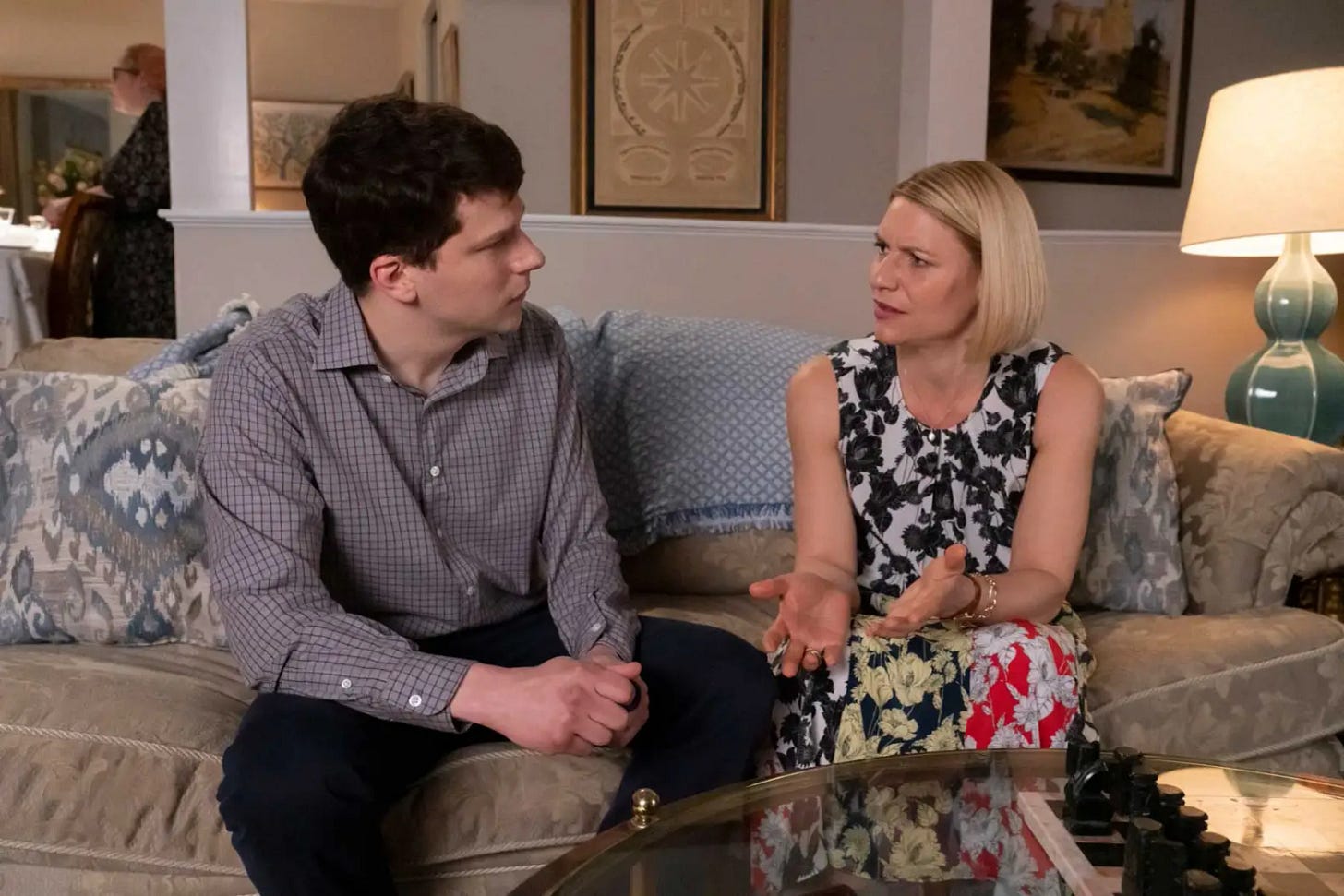
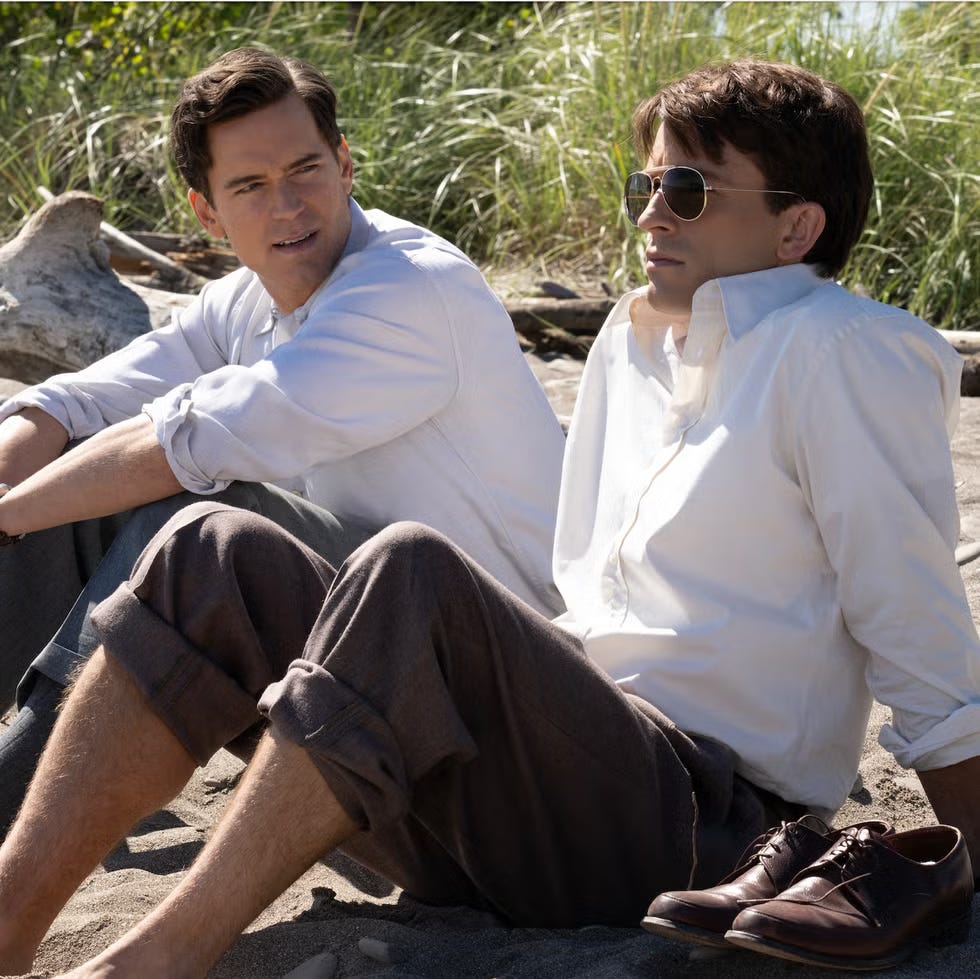
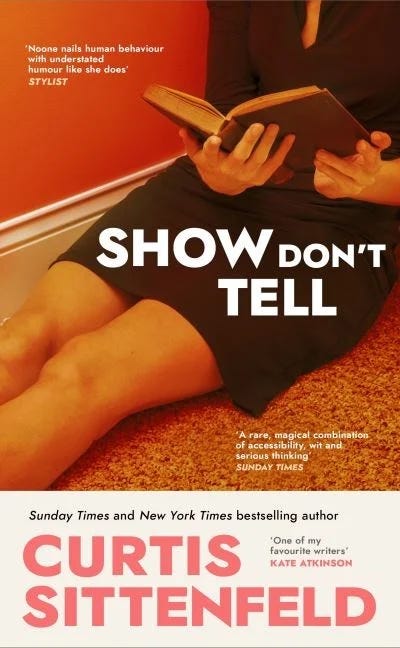
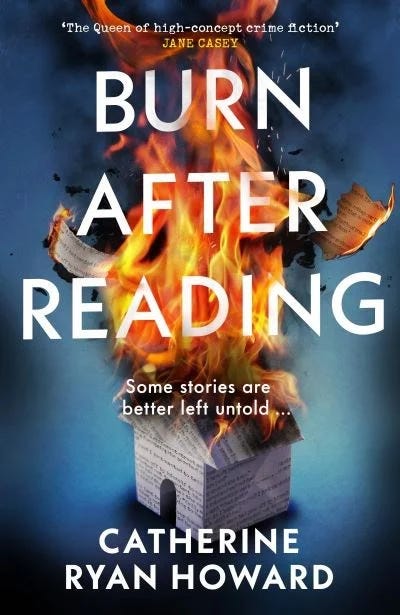
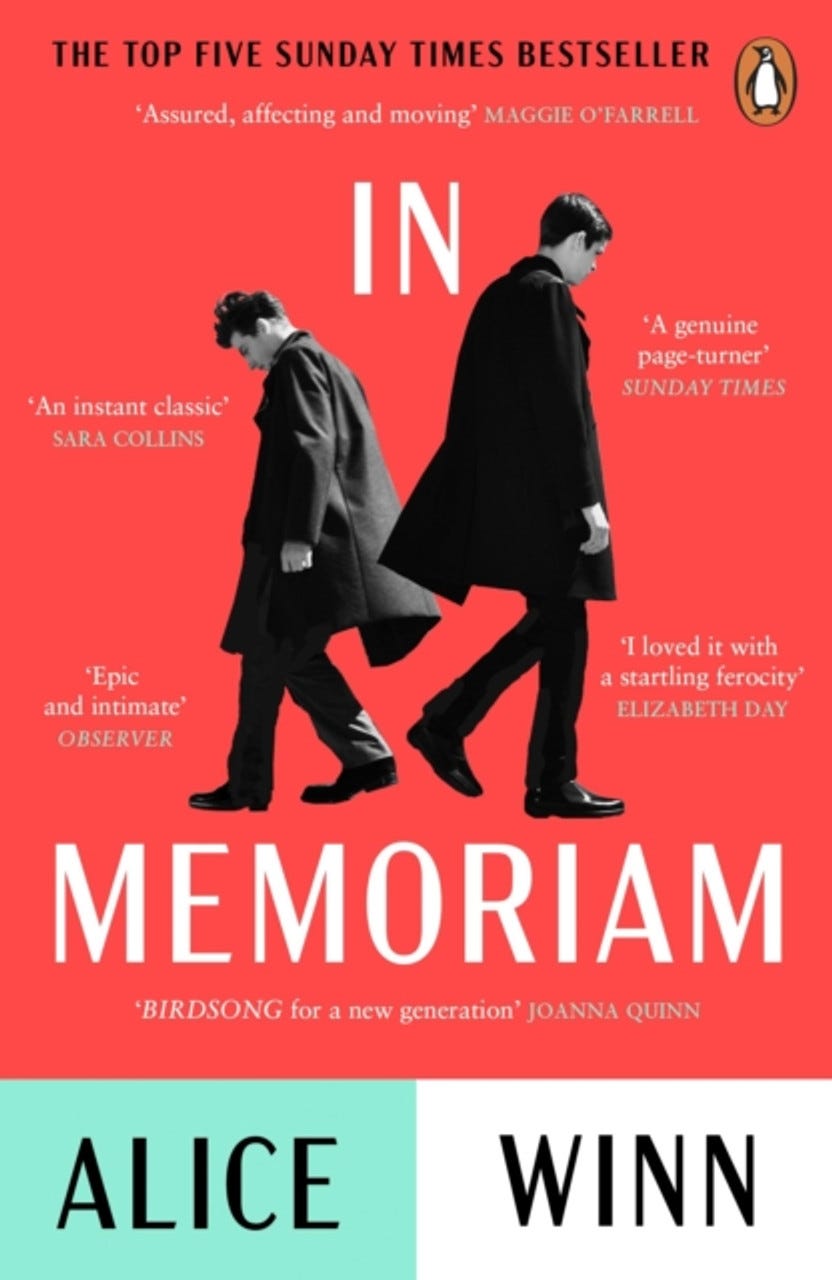
In Memoriam was the best book I read last year, hands down. I was completely blown away by it. And Fleishman in both its forms is superb - one of the best TV adaptations in recent years.